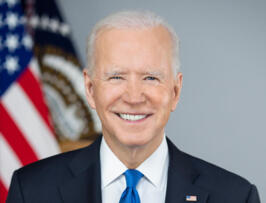Ebola's Message: Foreign Aid and Science Funding in a Time of Global Peril
A Commentary By Joe Conason
Most Americans have long believed, in embarrassing ignorance, that the share of the U.S. federal budget spent on foreign aid is an order of magnitude higher than what we actually spend abroad. Years ago, this mistaken view was amplified from the far right by the John Birch Society. Today, it is the tea party movement complaining that joblessness and poverty in the United States result directly from the lamentable fact that "President Obama keeps sending our money overseas."
Actually, spending on foreign assistance has remained remarkably steady for many years in Washington, at around 1 percent, a minuscule level compared with what other developed nations spend to improve living standards in the developing world. But perhaps that is because those other countries have figured out what we may soon learn from the latest Ebola outbreak: Disease vectors do not respect national or political boundaries -- and the lack of medical infrastructure in one country can ultimately threaten all countries.
At this very moment, the health systems built by many years of painstaking effort in Africa -- inadequate as they are -- struggle to prevent the spread of this awful illness beyond the countries already struck. We would be far safer if those systems were more modern and robust.
The likelihood that Africa's Ebola outbreak will spread to the United States is vanishingly small -- and the chances that American medical authorities would be unable to control it is even smaller still. While Americans appear to be terrified by even this relatively minor risk, however, many seem unable to comprehend why we might want to spend money to improve health systems in countries where such threats originate. So Republicans in Congress echo the tea party rhetoric about foreign aid, seeking to cut assistance of all kinds from minuscule to nonexistent.
In the same vein, the Republican right remains hostile to federal science spending and to science as a public priority, evidently because scientific research on such topics as climate change, health, the environment and nutrition consistently clash with the priorities of its corporate clientele. The tea party constituency increasingly distrusts scientists, whom they regard as elements of a broad conspiracy to control rugged, freedom-loving Americans such as themselves. Presumably that is why Republican budgets in recent years have consistently sought billions of dollars in cuts to important research agencies such as the National Institutes of Health, the National Science Foundation, the National Oceanic and Atmospheric Administration and -- yes -- even the Centers for Disease Control and Prevention.
You read that correctly: In their endless zeal to cut federal spending, Republicans have demanded substantial spending reductions at the CDC, the frontline agency that is responsible for controlling exotic bugs such as Ebola if and when they should ever reach our shores. If there were an outbreak of Ebola or any other such malady in the United States, those same budget-cutting Republicans would ask in tones of outrage how and why the CDC had failed to prevent it.
In a wealthy nation like ours, citizens are accustomed to a multilayered defense against pandemic disease, with strong capacity to identify and isolate such threats before they do grave harm. But HIV/AIDS, which almost certainly came here from Africa, told us that our defenses are not impenetrable; now Ebola is telling us again that a menace to Africans can quickly become a potential threat to us as well.
If we want to continue to enjoy the peace of mind and quality of life that Americans regard as our birthright, we would be well advised to reject the tea party's ideological hostility to aid and science. We ought to fully fund our scientific institutions, rebuild our public health infrastructure and devote much more money to improving the health systems of the world's poorest nations -- or else live to regret our stupidity.
To find out more about Joe Conason and read features by other Creators Syndicate writers and cartoonists, visit the Creators Syndicate website at www.creators.com.
COPYRIGHT 2014 CREATORS.COM
See Other Political Commentary.
See Other Commentary by Joe Conason.
Views expressed in this column are those of the author, not those of Rasmussen Reports.
Rasmussen Reports is a media company specializing in the collection, publication and distribution of public opinion information.
We conduct public opinion polls on a variety of topics to inform our audience on events in the news and other topics of interest. To ensure editorial control and independence, we pay for the polls ourselves and generate revenue through the sale of subscriptions, sponsorships, and advertising. Nightly polling on politics, business and lifestyle topics provides the content to update the Rasmussen Reports web site many times each day. If it's in the news, it's in our polls. Additionally, the data drives a daily update newsletter and various media outlets across the country.
Some information, including the Rasmussen Reports daily Presidential Tracking Poll and commentaries are available for free to the general public. Subscriptions are available for $4.95 a month or 34.95 a year that provide subscribers with exclusive access to more than 20 stories per week on upcoming elections, consumer confidence, and issues that affect us all. For those who are really into the numbers, Platinum Members can review demographic crosstabs and a full history of our data.
To learn more about our methodology, click here.



